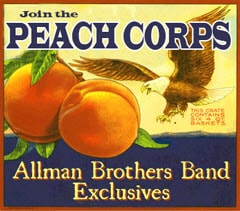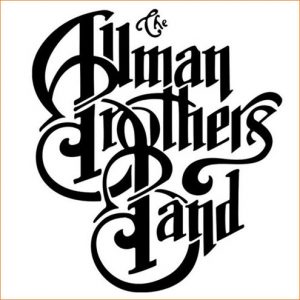By: Regis Behe
TRIBUNE-REVIEW
Thursday, August 15, 2002
Allman Brothers Band drummer Butch Trucks is reached in New York City’s Central Park, where he’s watching bandmate Marc Quinones play a softball game.
“Aww, Marc!” Trucks cries at one point. “He just dropped one he should have caught.”
It’s about the only blemish on a perfect summer day, Trucks goes on to say. He’s home, the band is starting another leg of its constant touring schedule, and life has never been better.
“I feel blessed,” he says. “I’m a very lucky guy to be able to do this. I’m 55, and I make a very, very good living, and have a very good life, playing music.”
Twenty years ago, the odds against the Allman Brothers becoming one of rock’s longest-running acts were minuscule. Cursed by the deaths of guitarist Duane Allman and bassist Berry Oakely in motorcycle accidents in 1971 and ’72, they were further plagued by drug and alcohol problems and unrest when singer and keyboardist Gregg Allman and guitarist Dickey Betts tried to start solo careers in the late ’70s.
By the 1980s, Trucks says, there weren’t a whole lot of people who wanted to listen to a band that was steeped in “blues and rock ‘n’ roll and country and a little classical. I think what we added to it that made it unique was more complex improvisation that came from people like John Coltrane and Miles Davis and Herbie Hancock. But we pretty much took the ’80s off to let disco have its day in the sun.”
Then came the 1990s, and Trucks admits he’s baffled as to exactly why the Allmans became popular again. But suddenly, they were touring and drawing large crowds to outdoor and indoor venues across the country, a phenomenon that hasn’t stopped.
“We played in Boston the night before last to about 18,000 kids, and I’d say 60 (percent) to 70 percent of them were 15 to 25 years old,” he says. “It’s absolutely heartwarming.”
Part of the resurgent appeal is due to the band’s enduring reputation as one of rock’s finest units. The Allmans were considered the masters of improvisation well before the Grateful Dead traveling road show reached its apex, as evidenced in the seminal “Live at the Fillmore East” album from 1971.
There are different members now, of course, for different times. Betts left the band years ago for a solo career and was replaced by a procession of guitarists, including Warren Haynes, who splits time between the Allmans and Gov’t Mule. Trucks’ nephew, guitarist Derek Trucks, 23, also has become a regular touring member.
“It’s more than just pride,” Trucks says when asked about his nephew. “We did a version of ‘Dreams’ the other night, and he played one of the best damn guitar solos I’ve ever heard in my life. He’s got such a sense of when to get out that so many rock ‘n’ roll guitar players don’t have. … They just wear you out, but Derek has this sense. … He just took the thing to a peak, and as soon as he reached it, he got out of there.”
Just as heartening is the return to health and form of Gregg Allman. Noting that “Gregg just kind of lost it” for a few years, Trucks says the one thing that always remained was Allman’s innate musical ability.
“Now, with his new sobriety, he’s in the best frame of mind I’ve ever seen him in,” Trucks says. “I worked with Gregg a few years before the Allman Brothers, and I’ve never seen him like this. He’s just loving life, he’s great to be around, and he and Warren get together and the songs are just pouring out. You’ve got years and years of ideas that Gregg has been working on, so that all of a sudden, he gets with Warren, there’s a song.”
The band recently finished a recording session for an album that’s tentatively titled “Victory Dance.” Due out early next year, the group completed 11 tracks in 10 days, an achievement for a band that Trucks admits used to take 10 days for one track.
The band also released a live recording earlier this year, “American University 12-13-70,” on its own label. That album might be the first of many vintage shows released, as Trucks notes the band is trying to reacquire a cache of tapes in a warehouse owned by BMG. The band is in the midst of “legal maneuverings” to get the material back, Trucks says, and already has won a court appeal.
“There’s never been a better time to be an Allman Brother,” he says, laughing.



